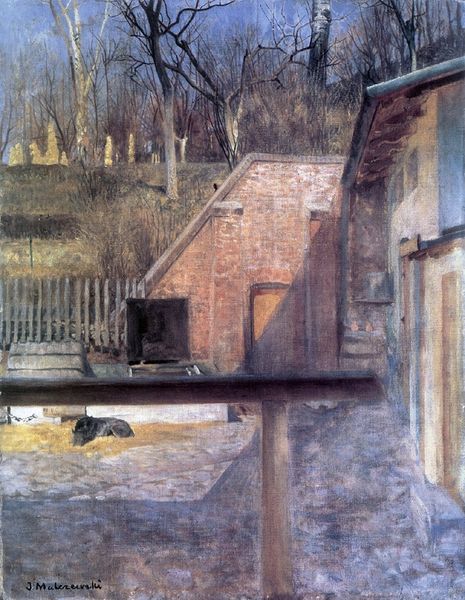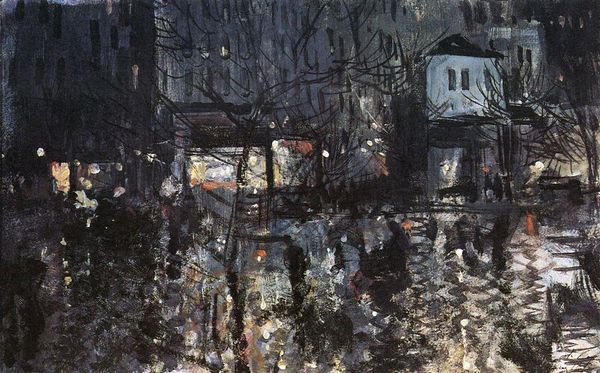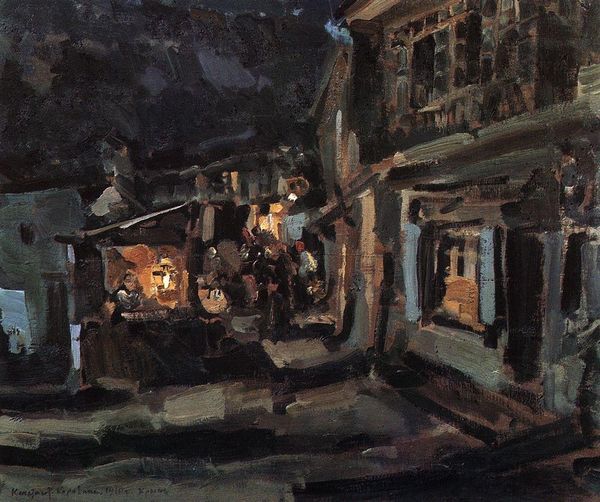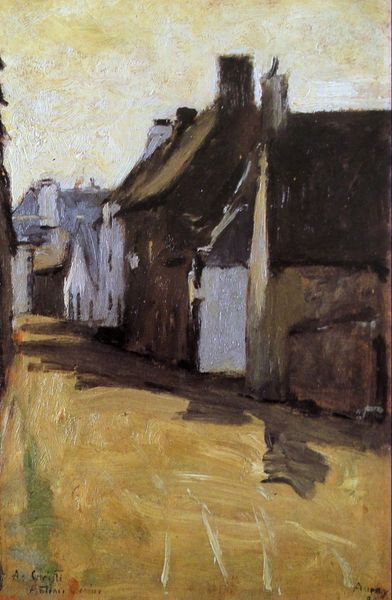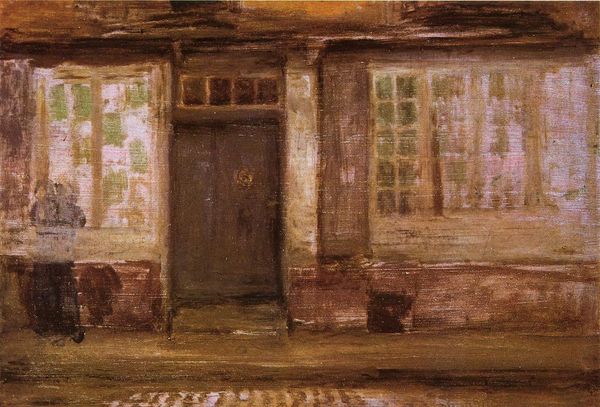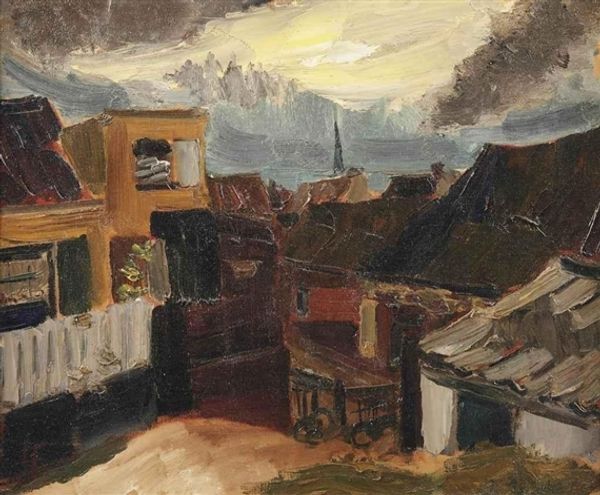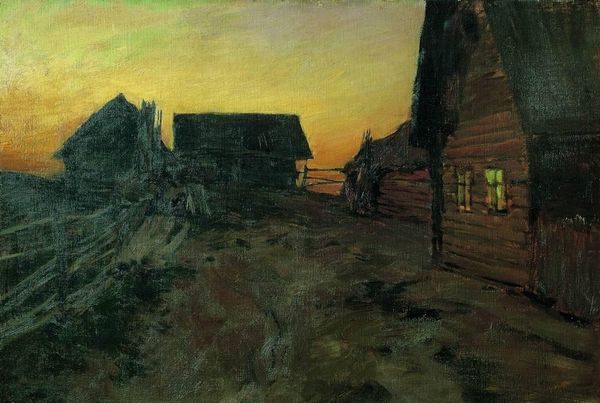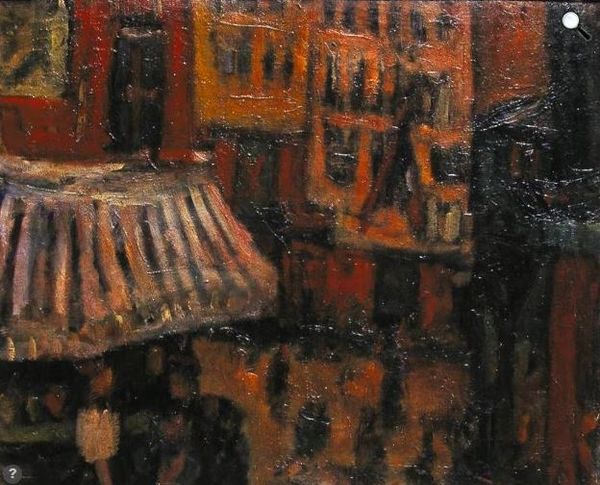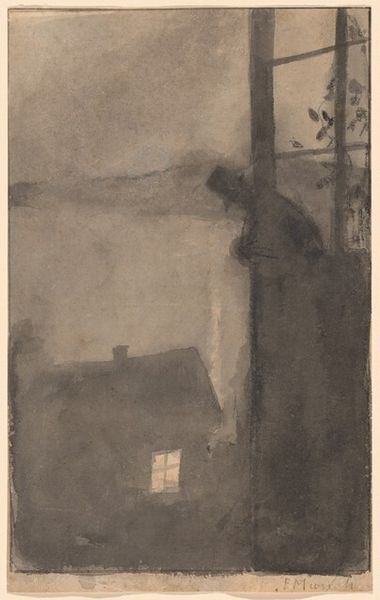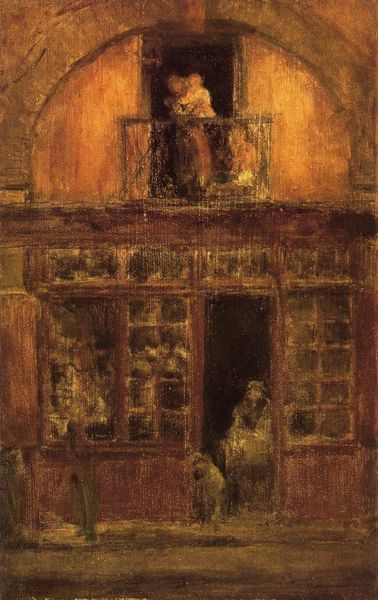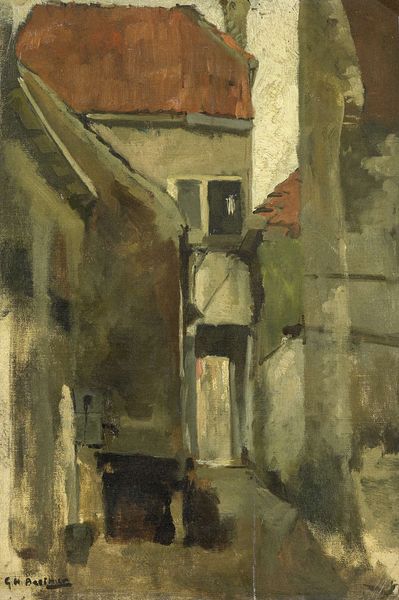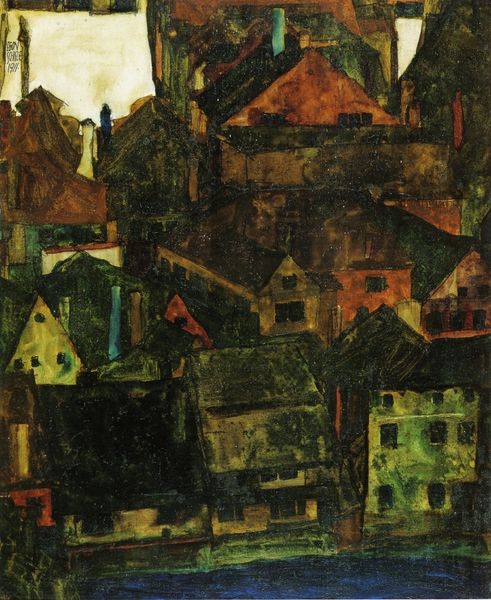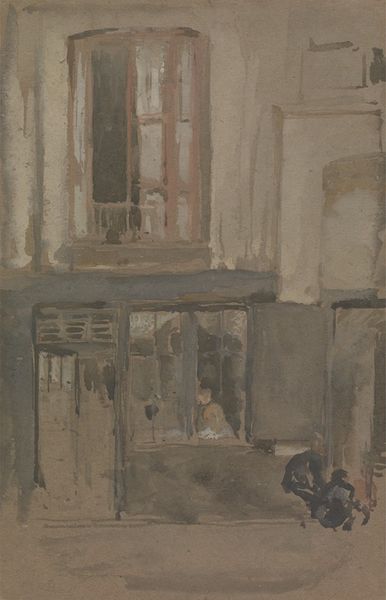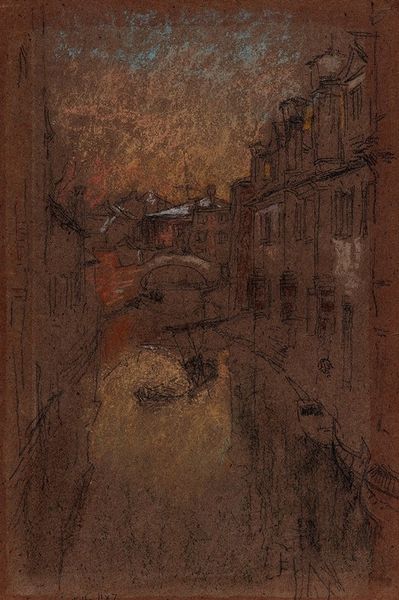
painting, oil-paint
#
narrative-art
#
painting
#
impressionism
#
oil-paint
#
landscape
#
charcoal drawing
#
oil painting
#
underpainting
#
painting painterly
#
cityscape
#
watercolor
#
realism
Dimensions: 21.59 x 12.38 cm
Copyright: Public domain
Editor: We're looking at "The Little Red House" by James Abbott McNeill Whistler, painted in 1884. It’s an oil painting, and what strikes me first is how intimate, almost claustrophobic, the composition feels. There's this compressed space and sense of quiet observation. What do you see in this piece? Curator: Absolutely. For me, this painting offers a powerful glimpse into the marginalized spaces of late 19th-century urban life. Think about the context: rapid industrialization, crowded cities, and stark social inequalities. The "little red house" isn't simply a quaint image; it's a marker of class and access, or rather, a lack thereof. Editor: I see what you mean. It’s not just a pretty scene. Curator: Exactly. Whistler, though often associated with aestheticism, was also engaging, perhaps unconsciously, with the realities of urban poverty. The subdued colors and almost obscured details speak to a kind of lived reality that's often ignored in more grandiose depictions of the era. Consider, too, who is being seen, and who is being overlooked, in images from this time? Editor: It makes me consider who this little red house belonged to and their socio-economic standing, even within the limited scope that the painting provides. It raises all these questions about people’s personal stories that we don't readily have answers to. Curator: Precisely. It challenges us to see beyond the surface and to ask questions about power, representation, and the everyday lives of ordinary people. This seemingly simple landscape becomes a powerful reminder of the complexities hidden within the urban fabric. Editor: Thank you. I now see the painting with new eyes. Curator: And that’s precisely the power of art: to spark dialogue and provoke critical reflection on the world around us.
Comments
No comments
Be the first to comment and join the conversation on the ultimate creative platform.
